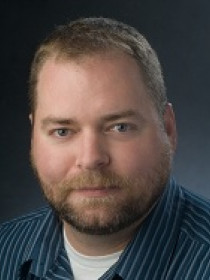
Aaron M. McCright
Connect with Aaron
About Aaron
McCright has investigated the political dynamics of climate change since the mid-1990s. His current work analyzes the political dynamics and public understanding of climate science and policy in the United States, focusing primarily on organized climate change denial and political polarization on climate change in the U.S. general public. For this work, he was named a 2007 Kavli Frontiers Fellow in the National Academy of Sciences. He is a Lead Author of a chapter on climate change skepticism and denial for the American Sociological Association’s Task Force on Sociology and Global Climate Change.
Contributions
The Polarization of U.S. Public Opinion on Climate Change
The Climate Change Denial Campaign
In the News
Publications
Examines political polarization on climate change within the American public between 2001 and 2010, and finds that liberals and Democrats are more likely to report beliefs consistent with the scientific consensus and express personal concern about global warming than are conservatives and Republicans – and that these differences increased over the decade.